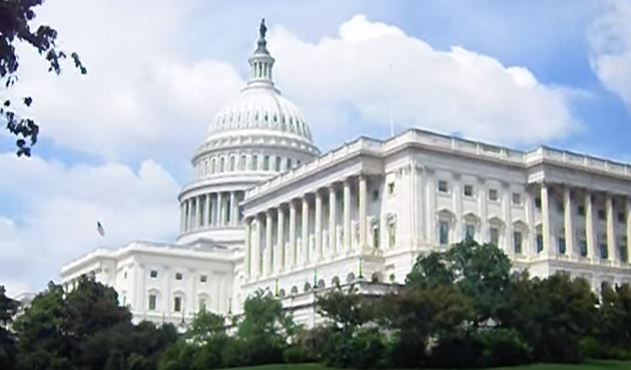
The New York Times: The House, forced to vote a second time on the $1.5 trillion tax bill, moved swiftly to pass the final version on Wednesday, clearing the way for President Trump to sign into law the most sweeping tax overhaul in decades.
House lawmakers approved the tax bill 224 to 201 on Wednesday, after being forced to vote on the bill again after last-minute revisions were made to it in the Senate, which passed the measure 51 to 48 early Wednesday morning.
The final House vote was essentially a formality, as the changes, which were made to comply with Senate budget rules, did not significantly alter the overall bill. But the need for a second vote gave ammunition to Democrats, who had already accused Republicans of trying to rush the tax overhaul through the House and Senate.
“We are five days away from Christmas, but it feels like Groundhog Day,” said Representative Louise M. Slaughter, Democrat of New York, who denounced the process by which Republicans undertook their tax rewrite as “nothing short of an abomination.”
Representative Lloyd Doggett, Democrat of Texas, said, “We will be cleaning up this mess and the blunders in this bill all of next year.”
The tax rewrite is the biggest legislative achievement for Republicans since they gained full control of Congress and the White House. The tax bill delivers deep and permanent tax cuts for corporations while providing temporary tax cuts for individual taxpayers, including the wealthiest Americans.
The overhaul drops the corporate rate to 21 percent, from 35 percent, as Republicans seek to boost American competitiveness and spur economic growth. In addition, it provides a tax break to owners of pass-through businesses, whose profits are taxed through the individual code.
The bill also cuts taxes for individuals, including a lower top rate of 37 percent, down from 39.6 percent. It nearly doubles the standard deduction and doubles the child tax credit, and it also doubles the size of inheritances shielded from estate taxation, to $22 million for married couples. But Republicans set the individual tax cuts to expire after 2025 in order to make the bill comply with budget rules.
In a move that drew significant criticism from lawmakers from states with high taxes, the bill caps the deduction for state and local taxes at $10,000. Twelve House Republicans voted against the tax bill on both Tuesday and Wednesday, and 11 of those members were from California, New Jersey and New York, three states with high taxes.
The bill also eliminates the Affordable Care Act’s requirement that most people have health insurance or pay a penalty, known as the individual mandate, providing Republicans with a victory on health care after their previous failure to repeal and replace President Barack Obama’s health law. It also opens the Arctic National Wildlife Refuge in Alaska to oil and gas drilling.
Mr. Trump is scheduled to hold a “bill passage event” at the White House with lawmakers at 3 p.m. on Wednesday, where he is expected to continue his public praise of the bill’s passage. On Wednesday, Mr. Trump cheered the tax cuts on Twitter and lamented “the Fake News” and “the defeated Dems” who “demean” the cuts
The Tax Cuts are so large and so meaningful, and yet the Fake News is working overtime to follow the lead of their friends, the defeated Dems, and only demean. This is truly a case where the results will speak for themselves, starting very soon. Jobs, Jobs, Jobs!
— Donald J. Trump (@realDonaldTrump) December 20, 2017
Republicans passed the bill under special procedures that allowed them to avoid a Democratic filibuster in the Senate, where they have a narrow majority. But as a result, they had to abide by budget rules that limited the contents of their bill, and three provisions were deemed by the Senate parliamentarian to run afoul of those rules.
Those components included a provision to allow the use of 529 savings accounts for homeschooling expenses, as well as part of the criteria for determining whether colleges and universities are subject to an excise tax imposed on their investment income. The provision naming the bill as the Tax Cuts and Jobs Act was deemed out of bounds, too, because it would not have a budgetary effect.
Senate Democrats challenged the problematic language, which was subsequently removed from the bill, necessitating another vote in the House.
“If you believe it’s an important use of the Democratic minority’s time on the Senate side to strike the title of the bill because it doesn’t actually impact deficit reduction, it is within their right,” said Representative Rob Woodall, Republican of Georgia. “Does it represent the highest and best use of their time? It does not.”
But Mr. Doggett seized on the last-minute development.
“It is a bill that has no name, and of course it has no heart,” he said.
Mr. Doggett suggested that the bill could be called the “Donald J. Trump Windfall Bill,” arguing that Mr. Trump and his family would be enriched by the tax rewrite.




